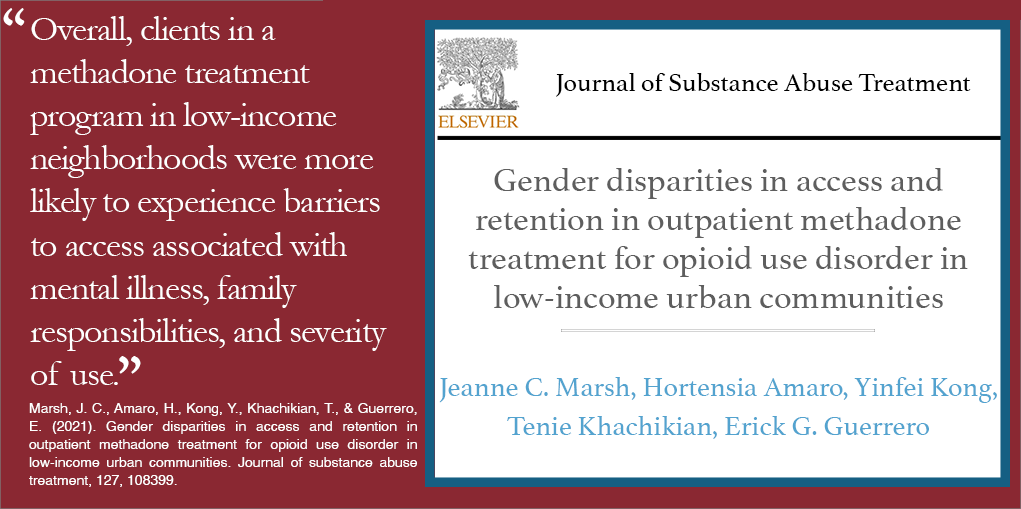The purpose of this study was to detect and understand gender disparities in access and retention among outpatient methadone treatment programs located in low-income urban communities in Los Angeles, California. The study collected client- and program-level data in 4 waves in 2011, 2013, 2015, and 2017 from 34 publicly funded methadone treatment programs serving 11,169 clients with opioid use disorder (OUD). The sample included 29.8% female and 70.2% male clients, where 10.6% identified as Black or African American, 41.5% as Latino, 44.2% as non-Latino white, and 3.8% as Other. We conducted two multilevel negative binomial regression models to examine direct and moderated relationships related to both access (days on the waitlist) and retention (days in treatment) while accounting for clients clustered within programs. Gender disparities existed in both access and retention where women spent more time than men waiting to enter treatment but then remained in treatment longer. Further, female clients identifying as African American, Latino, and Other were at greater risk for shorter treatment duration than those who identified as non-Latino white and men. Overall, OUD clients receiving methadone treatment in low-income neighborhoods experienced barriers to access and retention in treatment associated with mental illness, family responsibilities, and use severity. OUD clients with MediCal insurance eligibility were consistently more likely to gain access to and remain in methadone treatment. Overall, findings call for improving treatment access and retention for women with OUD who receive methadone in outpatient methadone treatment programs through comprehensive, gender-specific, and evidence-based programming.
To read the full article click here.

